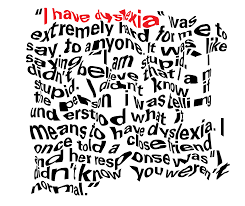Dyslexia is a learning disorder that affects your ability to read, spell, write and speak. The individual suffering from dyslexia is often brilliant. Their problem in dyslexia is a visual one, not a linguistic one. The dyslexia is not anyhow related to the intelligence although it is a neurological condition.
If you need more information or you have a question regarding Dyslexia, you can discuss it with our HearingSol healthcare professionals, just give us a call on +91-9327901950. We are always here to help you.
Dyslexia is not a disease. It is a condition in which student or child have trouble in reading and spelling word correctly. All students are instructed in the same way. With the same teacher but an affected child has trouble in reading and spelling. It may be a symptom of hearing loss.

The earlier a child with dyslexia is identified, the more powerful educational interventions are likely to be. We need to get tested for dyslexia to identify. What problems getting in the way of learning? The four tests used during test or evaluation for dyslexia.
If a child is suffering from dyslexia then you should contact a doctor. He will test for dyslexia as part of a full evaluation. A doctor will identify his specific areas of weakness in reading.
Skills test for Dyslexia
When we are talking about dyslexia test, there is one more test in the process that can measure each skill. The exact test used will depend on the person doing the evaluation of the child. A doctor will measure child ability to isolate and work with sounds.
- Phonological awareness
- Decoding
- Reading fluency and comprehension
- Rapid naming
4 Tests for dyslexia:
Test which Phonological awareness:
In this child ability to isolate and also working with sound is measured. Getting problem in phonological awareness is a major sign of dyslexia.
In this test, evaluator asks the child to blend sounds and segment words. For example, say dog without first word.
Or the evaluator may say “ba”…“Anna” and your child is asked to fill in the middle sound. Middle sounds are more difficult than the left and right sounds. Easy words are given to younger kids. As the child’s age increases the difficulty level of the words also increases.
Test which accesses decoding:
In this test, the logical ability of your child is checked. And also test the ability to identify familiar words. The evaluator makes the child read aloud single real words and pseudowords (fake words). Fake words look alike real ones having no meaning, such as hiff or migheron. For decoding the fake words, tests your child’s ability to apply rules to match the unit of sound to their written symbols in order to sound out words.
Test which accesses child reading fluency and comprehension:
In this child fluency and accuracy is measured.
If a child reads passages aloud and after reading answers multiple-choice or open-ended questions. On some tests, kids refer back to the passage. On others, they can’t.
The test to assess rapid naming:
In this child ability to quickly name common letter objects, numbers or colors is checked.
Evaluator gives your child cards with rows that consist of various items. There are different cards, with letters, numbers, colors, or pictures of common objects.
Your child names these items, starting from the top left and going row by row, as quickly as he can. The evaluator records how much time is taken by the child (and the accuracy). Younger kids are shown only objects and colors.
Background information
Information from parents and teachers everything about a student’s overall progress and development in different fields. Students whose parents or grandparents have dyslexia. Then the child is most likely to suffer from it because dyslexia is a genetic disorder. A history of delayed speech or language also puts a child to face reading difficulties.
Word recognition
Word recognition is the ability to identify words. In this test, students read the words printed in a list. Most often student does not use cues to find out the meaning of the word. They do not try to know the meaning of a word by sentence. Tests of word identifying that score both accuracy and the time it takes for the student to read the words (fluency) are particularly useful.
The symptoms of dyslexia:
- Delay in language development
- Problems in identifying the differences between similar sounds or segmenting words.
- Slow remembering of new vocabulary words
- Copying from the board or a book is difficult.
- The problem with learning reading, writing, and spelling skills
- Learning content becomes difficult.
- Problems with spatial relationships can exceed beyond the classroom and can be noticed on the playground. The child may face difficulties in coordination and have difficulty with organized sports or games.
However, The evaluator or expert look at all testing result together. And also check some other type of intelligence. This is a time taking the process and can take approx one weak to put all the information together and write a report.
Difficulties with Dyslexia
A child suffering from dyslexia may have these problems:
- Spells phonetically and inconsistently.
- Confused by letters, numbers, words
- Sometimes feels dumb has poor self-esteem and hides or covers up weaknesses
- Have difficulty with vision
- Reads and rereads with little comprehension.
- Difficulty putting thoughts into words
- The trouble with writing or copying
What happens after the test of dyslexia?
The evaluator or expert look at all testing result together. And also check some other type of intelligence. This is a time taking the process and can take approx one weak to put all the information together and write a report.
Read More – Phonation Therapy
